Resources
Featured
Date
Description
A full list of AIP media releases. , MEDIA RELEASES 2024 Federal Budget a Breakthrough for Low Carbon Fuels MEDIA RELEASES 2023 A Good Health Report Card for the Australian Petroleum Industry MEDIA RELEASES 2021 The Colour…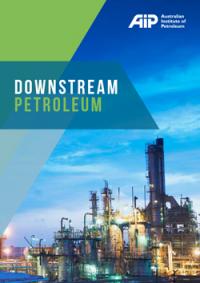
Date
Description
AIP produces a publication "Downstream Petroleum" on the state of the Australian downstream petroleum industry and its financial performance. The report provides a concise overview of recent developments in petroleum refining and marketing in Australia and the Asian region. The report highlights…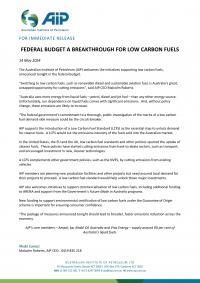
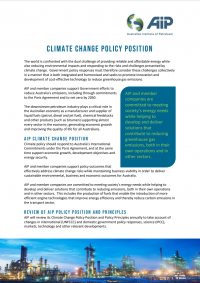
Date
Description
AIP and member companies are committed to meeting society’s energy needs while helping to develop and deliver solutions that contribute to reducing greenhouse gas emissions, both in their own operations and in other sectors. We support Government efforts to reduce Australia’s emissions,…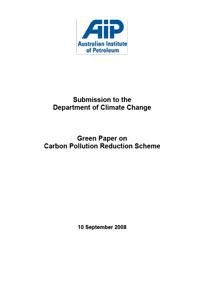
Date
Description
AIP and its member companies actively participate in public consultation processes on climate change. For example, AIP and its member companies are participating in the process of public consultation on national climate change policy development, including on the range of issues associated with…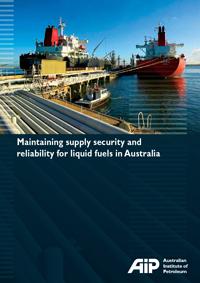
Date
Description
AIP has produced a new publication – Maintaining Supply Security and Reliability for Liquid Fuels in Australia – which provides a factual overview of the liquid fuels market and supply chain in Australia. It also details the key factors influencing the secure and reliable supply of liquid fuels to…Date
Description
The NOSEC is a committee of the Ministerial Council on Energy (MCE) and provides the main executive channel through which Commonwealth and State Governments formulate their overall management response to a national liquid fuel emergency. The task of the NOSEC is to ensure that the Federal…Date
Description
Transport fuel imports do not increase risk for supply reliability and security A diversity of global supply sources and local import facilities provide a range of options for Australia. Australia is already dependent on imports to meet the growth in demand for transport fuels (eg. demand…Date
Description
Relying on shipping (for imports) does not increase security risks, and shipping lanes are not easily disrupted. Most countries are reliant on movements of petroleum (crude and product) within and between countries, and particularly so for Australia (in both an export and import sense).…Date
Description
Self-sufficiency in transport fuels is not necessary for supply security Security of supply is the result of resilient and efficient supply chains and robust risk management – it is not about self-sufficiency or independence from markets. There are 3 critical elements of any strategy to…